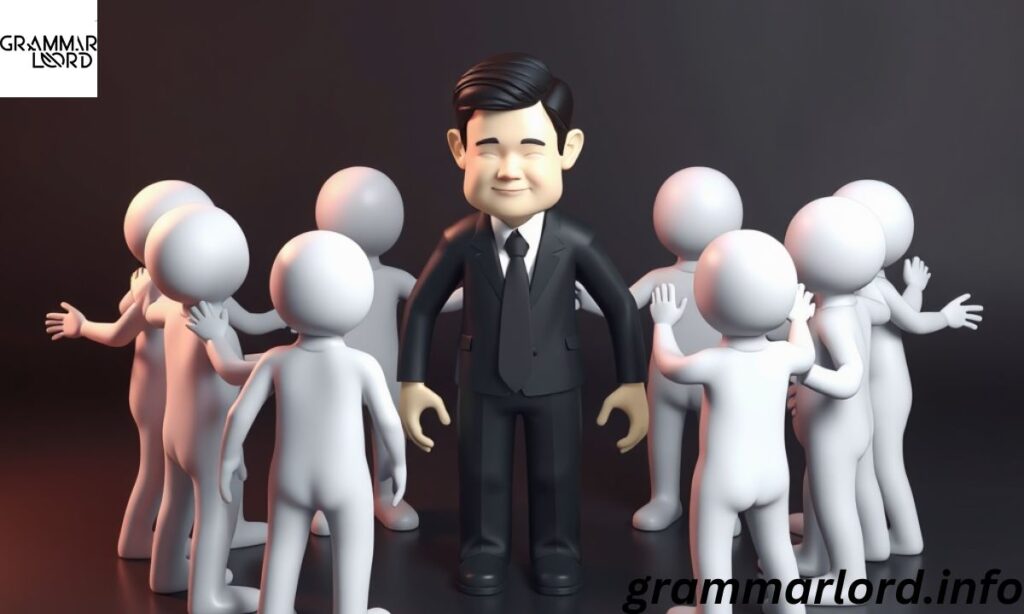People who don’t care about others’ feelings often display selfish, inconsiderate, or indifferent behavior. They may lack empathy, ignore emotional cues, and prioritize their own needs without concern for others.
Such individuals can be described as selfish, thoughtless, inconsiderate, apathetic, self-absorbed, oblivious, uncaring, insensitive, unfeeling, or cold-hearted. Their actions often strain relationships and create emotional distance.
Main Points
- Selfish Behavior: Prioritizing personal needs over others without concern.
- Thoughtless Actions: Acting without considering emotional consequences.
- Inconsiderate Attitude: Disregarding others’ feelings and needs.
- Apathetic Responses: Showing indifference and lack of emotional engagement.
- Self-Absorbed Traits: Focusing excessively on oneself while ignoring others.
- Oblivious Behaviors: Failing to recognize social cues or emotional distress.
- Uncaring Demeanor: Displaying cold and detached interactions.
- Insensitive Reactions: Responding in ways that dismiss or belittle others’ emotions.
- Unfeeling Disposition: Lacking emotional depth and connection.
- Cold-Hearted Nature: Showing no empathy or compassion in relationships.
Selfish Behavior

Selfish behavior manifests when individuals prioritize their own needs, desires, and goals over those of others, often at the expense of relationships. These individuals tend to act without considering how their choices impact those around them.
They may manipulate situations to their advantage, ensuring they benefit the most while others struggle. Their lack of generosity extends beyond material possessions, as they are also unwilling to share time, attention, or emotional support.
Often, they expect others to accommodate their needs without reciprocation. This behavior can stem from a deep sense of entitlement or insecurity. Over time, selfishness erodes trust and creates resentment in relationships.
It can manifest in friendships, romantic relationships, or workplaces. People who consistently exhibit selfish behavior may struggle with meaningful connections. Recognizing this trait in oneself or others is the first step toward fostering healthier, more balanced interactions.
Thoughtless Actions
Thoughtless actions occur when individuals act without considering the consequences their behavior may have on others. This can include speaking harsh words, making inconsiderate decisions, or failing to acknowledge the emotions of those affected.
Often, such actions stem from impulsiveness or a lack of awareness rather than intentional cruelty. However, repeated disregard for others’ feelings can strain relationships and lead to feelings of neglect or resentment.
Thoughtlessness can manifest in everyday scenarios, such as canceling plans last minute or failing to express gratitude. While everyone makes occasional mistakes, a pattern of thoughtless behavior suggests a deeper issue.
It may indicate an individual’s unwillingness to grow emotionally or acknowledge their impact on others. Small gestures of kindness and mindfulness can counteract thoughtlessness. By practicing empathy and self-awareness, people can become more considerate of those around them.
Inconsiderate Attitude
An inconsiderate attitude is marked by a lack of regard for how one’s words or actions affect others. People who exhibit this trait often disregard social norms of kindness and respect. They may interrupt conversations, dismiss others’ opinions, or fail to offer help when needed.
Inconsiderate individuals often expect patience and understanding but rarely extend the same courtesy. This behavior can stem from arrogance, a lack of emotional intelligence, or an inability to empathize with others.
It can be particularly harmful in close relationships, leading to frustration and emotional distance. Over time, an inconsiderate attitude can push people away, leaving the individual isolated.
Developing consideration requires conscious effort, including listening attentively and being mindful of others’ needs. Practicing kindness, even in small ways, fosters stronger and healthier relationships.
Apathetic Responses
Apathetic responses indicate a lack of emotional engagement or concern for others. This behavior can make interactions feel cold and distant, leaving others feeling unimportant or ignored.
When someone consistently responds with indifference, it signals a disinterest in meaningful communication. Apathetic individuals may avoid emotional conversations or dismiss others’ problems as trivial.
This lack of concern can stem from emotional burnout, depression, or a defense mechanism to avoid vulnerability. While emotional detachment can sometimes be unintentional, it can still hurt relationships.
Over time, constant apathy can lead to loneliness and misunderstandings. Encouraging open communication and emotional expression can help bridge the gap between detached individuals and those around them. Learning to engage empathetically can significantly improve personal and professional relationships.
Self-absorbed Traits
Self-absorbed individuals focus primarily on their own experiences, often disregarding the emotions and needs of others. They tend to dominate conversations, steering discussions toward themselves without showing interest in others’ perspectives.
Their need for validation often overshadows any effort to be considerate. This behavior can lead to one-sided relationships where others feel unheard or undervalued. Self-absorption is often linked to insecurity, as some individuals seek constant reassurance to boost their self-esteem.
Over time, this trait can create emotional distance, as people may tire of the lack of reciprocity. It can also prevent genuine connections from forming, as relationships require mutual give-and-take.
Becoming more self-aware and practicing active listening can help counter self-absorption. Learning to appreciate others’ experiences can lead to more fulfilling interactions.
Oblivious Behaviors
Oblivious behaviors occur when individuals fail to recognize or acknowledge the needs and emotions of those around them. This can result in unintentional insensitivity, such as failing to notice when someone is upset or ignoring social cues.
Often, people who exhibit oblivious behavior are not inherently unkind but rather lack awareness or social intelligence. This trait can be frustrating for those seeking emotional support, as they may feel neglected or unimportant.
In some cases, oblivious individuals may struggle with understanding nonverbal communication or subtle emotional expressions. Their actions can make others feel unseen and unappreciated, leading to strained relationships.
Developing mindfulness and paying closer attention to others can help reduce oblivious tendencies. Simple acts like asking questions or observing body language can improve social awareness. Making a conscious effort to be present in conversations fosters stronger connections.
Uncaring Demeanor

An uncaring demeanor is characterized by an apparent lack of concern for others’ well-being. People who exhibit this behavior often come across as cold, indifferent, or emotionally distant. They may refuse to offer comfort, dismiss the struggles of others, or avoid emotional conversations altogether.
This attitude can stem from past experiences, emotional detachment, or a reluctance to invest in relationships. While some individuals may act uncaring as a defense mechanism, others may genuinely lack empathy.
Over time, an uncaring demeanor can push people away, making it difficult to build trust and meaningful relationships. Addressing this behavior requires self-reflection and a willingness to develop emotional intelligence.
Acts of kindness, no matter how small, can help counteract an uncaring nature. Making an effort to listen and support others fosters stronger bonds.
Insensitive Reactions
Insensitive reactions occur when someone responds to situations in a way that dismisses or belittles others’ emotions. This can include making hurtful jokes, downplaying someone’s struggles, or offering unsolicited harsh criticism.
Individuals with this trait may not intend to be cruel but fail to consider how their words affect others. Insensitivity can stem from a lack of emotional awareness, an attempt to mask discomfort, or a belief that emotions are unimportant.
Over time, repeated insensitive reactions can damage trust and create emotional distance. People on the receiving end may feel invalidated, unheard, or even disrespected. Becoming more mindful of others’ emotions is key to reducing insensitive responses.
Practicing active listening and choosing words carefully can help foster a more compassionate approach. Small changes in communication can significantly improve relationships and interactions.
Unfeeling Disposition

An unfeeling disposition is marked by a general lack of emotional expression and concern for others. People with this trait may struggle to connect on a deeper level, making their interactions seem robotic or distant.
They may appear indifferent to joy, sadness, or distress, making it difficult for others to relate to them. This disposition can stem from past trauma, emotional suppression, or a natural tendency toward low emotional responsiveness.
While some individuals adopt this demeanor as a coping mechanism, it can still create barriers in relationships. Over time, an unfeeling disposition can lead to isolation, as others may perceive them as detached or uninterested.
Developing emotional awareness and practicing empathy can help individuals break free from this pattern. Expressing even small signs of warmth or concern can significantly improve personal connections.
Frequently Asked Questions
What causes someone to not care about others’ feelings?
It can stem from personality traits, emotional trauma, lack of empathy, or self-centered behavior.
How do you deal with someone who lacks empathy?
Set boundaries, communicate your feelings clearly, and avoid expecting emotional support from them.
Can a person change if they are naturally indifferent?
Yes, with self-awareness, therapy, and conscious effort, they can develop empathy and emotional intelligence.
Is being emotionally detached the same as being selfish?
Not always; emotional detachment can be a coping mechanism, whereas selfishness is more intentional.
What are the effects of dealing with an unempathetic person?
It can lead to frustration, emotional exhaustion, and strained relationships if not managed properly.
Conclusion
People who don’t care about others’ feelings often exhibit behaviors such as selfishness, insensitivity, and emotional detachment. Their actions can negatively impact relationships, making others feel undervalued and unheard. Recognizing these traits in someone can help in managing expectations and setting boundaries to avoid emotional distress.
While some individuals may struggle with empathy due to personal experiences or psychological reasons, change is possible with awareness and effort. Encouraging open communication and practicing emotional intelligence can improve relationships.

